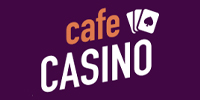How online gambling is regulated in the US
Gambling in the US is not illegal, but faces many legal restrictions. This happens because each state can make its own laws regarding offline and online casinos. So how are things going with American online gambling?
Regulation of the American gaming industry is carried out not only by the federal government. Each state may adopt its own laws, according to which the activities of land-based casinos and gambling resources on the Internet are carried out. The rules by which an online gambling resource operates depend on documents approved at the federal level, the laws of a particular state, and the decisions of the Federal Gaming Commission.
The federal law is basic: acts adopted at the local level cannot contradict it. Additionally, there are exceptions such as Nevada’s status and separate rules for tribal casinos. Previously, gambling was legalized in only two states of the country, while the remaining 48 were completely banned. But the modern market has changed: now the gambling business is allowed almost everywhere (with the exception of Utah and Hawaii). But how are things going with gambling in the United States?

US Online Gambling Laws
The first online casinos began to open in 1994. The operators of these sites were often registered in the Isle of Man, but they readily accepted clients from the United States of America. In 1996, the Canadian Gambling Commission was established and began issuing licenses for online poker and online casinos in North America. The number of online gambling sites around the world suddenly increased to several hundred, and by 1998, the income from online gambling exceeded $ 800 million.
As for the USA, online gambling was banned there in 1961: then a law was passed prohibiting citizens of the country from transmitting information for betting on sports through telecommunications. The decision of the Court of Appeal banned sports betting already in 2002, but this did not apply to all online gambling. The Department of Justice appealed the decision and said that all online gambling is illegal in the United States and that its advertising amounts to incitement to commit a crime.
In September 2006, the United States Congress passed the Anti-Unlawful Internet Gambling Act (UIGEA), which prohibited United States banks from processing transactions for online gambling sites. After that, several online gambling operators withdrew from the US market, although the law was not directed against them: it was passed to fight money laundering and financial crimes. However, the global online gambling industry was growing and many operators continued to accept customers from the US. Relaunch of the US market
In December 2011, the Department of Justice issued an opinion that the federal law banning gambling on the Internet applies only to sports betting. This made it possible to consider online lotteries, online poker and online casino games as promising activities. In the summer of 2012, Delaware became the first state to legalize online gambling.
In February 2013, Nevada became the second state to legalize online gambling and issue online poker licenses. During the week, New Jersey became the third state to legalize online gambling, beginning to issue permits for online poker rooms and casinos in Atlantic City.
In April 2013, the first legal gambling site in the USA opened in Nevada. It was the online poker room Ultimate Poker. By fall, poker and other online gambling establishments were operating in Delaware and New Jersey. Pennsylvania became the fourth and largest state to pass legislation regulating online gambling in 2017.
Different states’ online gambling laws
A breakthrough for the American gambling market was the repeal of the PASPA federal law on the protection of professional and amateur sports, adopted in 1992 and which prohibits sports betting in the entire territory of America (exceptions are Nevada, Oregon, Delaware and Montana). The ban was overturned by the Supreme Court in the spring of 2018, allowing local governments to decide whether to ban or allow betting activities within the state.
New Jersey. Online sports betting, online casinos and online poker are allowed in this state. New Jersey is now one of the largest gambling markets in the US. There are more than a dozen legal online casino sites and poker rooms.
pennsylvania In 2019, the state government legalized betting on sports, online casinos and online poker. Betting companies DraftKings, FanDuel and Unibet operate here. Players can place bets both offline and through a browser or mobile application.
West Virginia. Here, accepting sports bets on the Internet is allowed since 2018. Online casinos and poker will be able to start their official work in 2020.
Indiana Betting on sports online began to be officially accepted in 2019, when the state allowed sportsbooks offline and on the Internet. Three online bookmakers are represented here – DraftKings, FanDuel and BetRivers, and five more are expected to enter the market.
Iowa. online sports betting was allowed in the state in 2019, with several companies opening in Iowa within six months. At the same time, the activities of online casinos and poker rooms are prohibited.
New Hampshire. Sports betting has been allowed here since the end of 2019, while the only company in the online market is DraftKings. The operation of poker rooms and online casinos is prohibited in this state.
Harmlessness. The state in which the famous Las Vegas is located has been a monopoly in terms of sports betting for almost 20 years, online betting was allowed here as early as 2010.
Delaware. Online betting has been allowed in this state since 2018. Online casinos have been operating in Delaware since 2013, when poker rooms were licensed. It is the first state to launch an online sportsbook after the ban was lifted.
Rhode Island. Online sports betting was legalized in 2019, and the first companies are expected to launch in 2020. Online casinos and poker rooms are prohibited in the state.

Oregon. It is allowed to make and accept bets on sports online starting from autumn 2019. The operation of online casinos and poker rooms on the Internet is prohibited.
Michigan. Last year, the state authorities allowed all types of online gambling here: accepting bets, operating casinos and poker rooms.
Colorado. The state is considering the possibility of allowing online casinos and poker rooms on the Internet, and accepting sports bets on the Internet has been legalized since 2019. The first companies are expected to appear this spring.
Montana. The governor of the state signed a law to legalize online sports betting in May 2019. The Intralot company will operate on the Montana gaming market. The operation of casinos and poker rooms on the Internet is prohibited.
Tennessee. The state government passed the online sportsbook law in April 2019. The launch of the first resources is expected in 2020.
Illinois. Sports betting became legal in the state of Illinois in June 2019, and the first betting sites will start operating in 2020. The licenses will cost $10 million.
Prospects for online gambling in other US states
Some states and individual cities are only looking at allowing online gambling, while others are facing various bureaucratic hurdles along the way. For example, in California, two bills regulating the gambling industry are being considered, and in Florida – three at once. Gambling legislation has been attempted in Kentucky and Kansas, and is under consideration in Massachusetts and Missouri.




